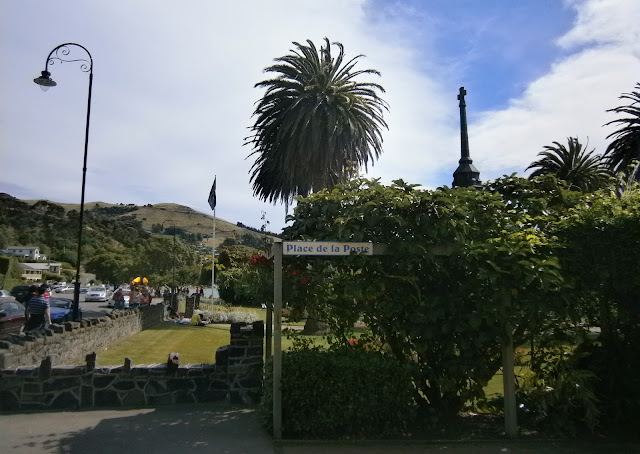Despite some truly confused weather, new year's day saw more gardening and digging up some lovely potatoes (and we can confirm that garlic stir-fried homegrown silver beet is another great Kiwi speciality)
On 2nd Jan, we said goodbye to Morag and Pete and the twins and St Helen's Homestead. We returned Euan's van to Lyttleton (just beyond Christchurch) (swapping back for M&P's blue car). From there, on their recommendation, we drove about 50 miles eastwards from Chch to the Banks Peninsula, ending in the very pretty village of Akaroa (normal population 600, Summertime pop est 15000!).
Akaroa, as well as being in very beautiful countryside (surrounded by volcanic hills on the seafront),
is also the oldest colonial settlement on the South Island
and with uniquely French influence (which maybe they play up a little these days!) **
** The Crown issued an Imperial Proclamation on 15 June 1839, which cited New Zealand as part of the British Realm and, on learning that France intended to colonise Akaroa for use as a whaling port, the English ship, the "Britomart", was despatched in order to proclaim sovereignty for the Crown. She arrived in Akaroa on 16 August 1840 and Captain Stanley raised the British flag and held a court at each of the occupied settlements. In 1838, Captain Langlois had made a provisional purchase of land in "the greater Banks Peninsula" and paid a deposit; on his return to France, he advertised for settlers to come to New Zealand and 63 emigrants left from Rochefort on 9 March 1840. The "Comté de Paris" arrived in the North Island on 11 July 1840, where they discovered that the Banks Peninsula had been claimed by the British. The French arrived in Akaroa on 18 August.









No comments:
Post a Comment